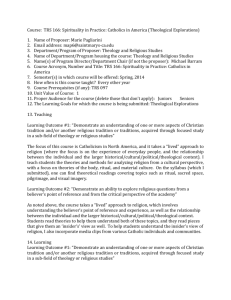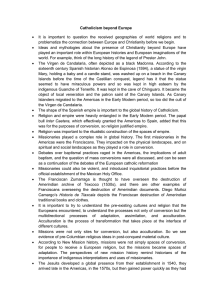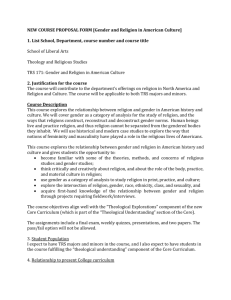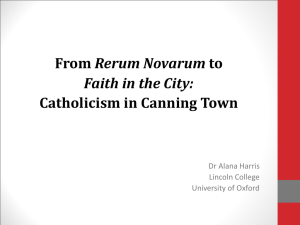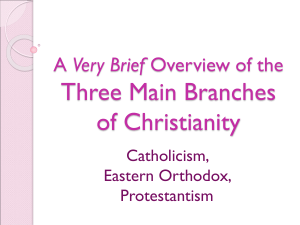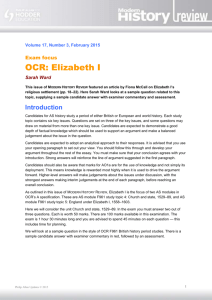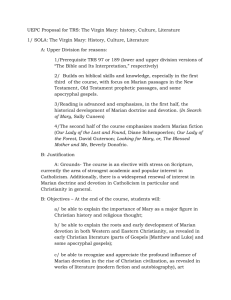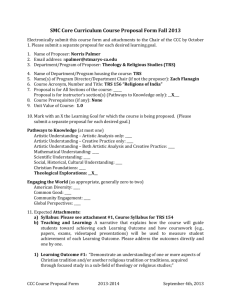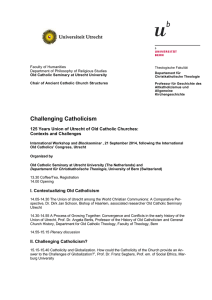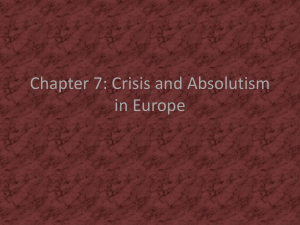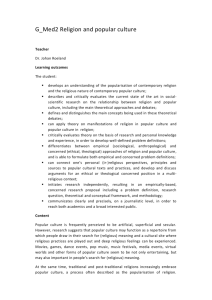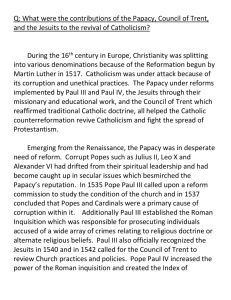TRS 166 Spirit in Practice New Course Proposal
advertisement
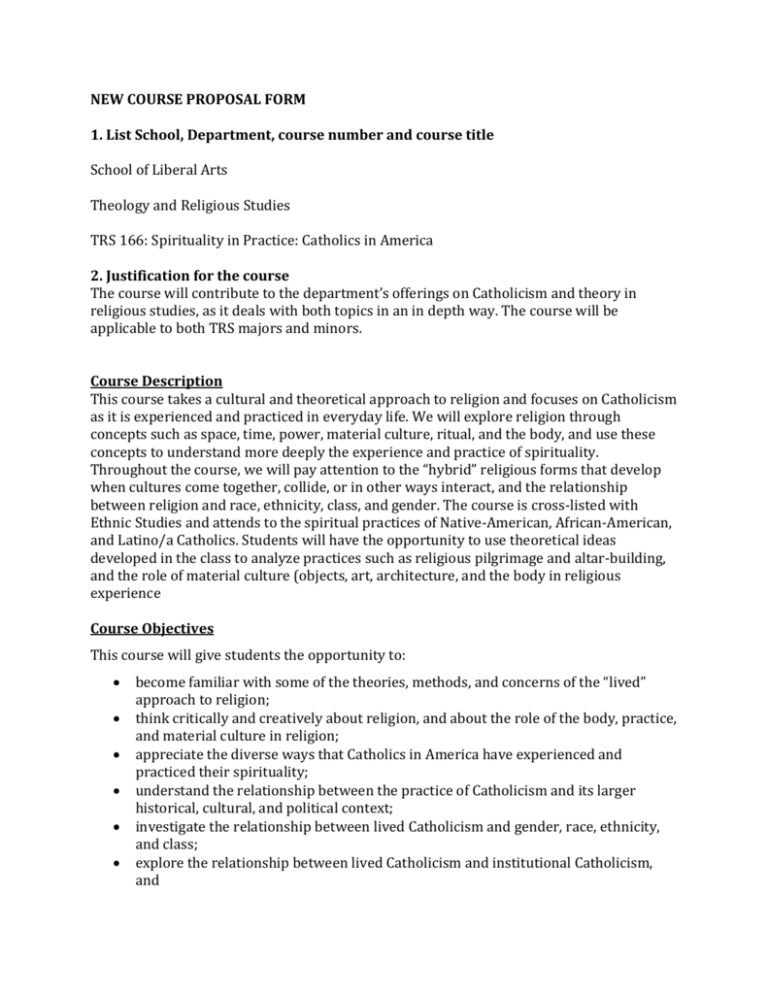
NEW COURSE PROPOSAL FORM 1. List School, Department, course number and course title School of Liberal Arts Theology and Religious Studies TRS 166: Spirituality in Practice: Catholics in America 2. Justification for the course The course will contribute to the department’s offerings on Catholicism and theory in religious studies, as it deals with both topics in an in depth way. The course will be applicable to both TRS majors and minors. Course Description This course takes a cultural and theoretical approach to religion and focuses on Catholicism as it is experienced and practiced in everyday life. We will explore religion through concepts such as space, time, power, material culture, ritual, and the body, and use these concepts to understand more deeply the experience and practice of spirituality. Throughout the course, we will pay attention to the “hybrid” religious forms that develop when cultures come together, collide, or in other ways interact, and the relationship between religion and race, ethnicity, class, and gender. The course is cross-listed with Ethnic Studies and attends to the spiritual practices of Native-American, African-American, and Latino/a Catholics. Students will have the opportunity to use theoretical ideas developed in the class to analyze practices such as religious pilgrimage and altar-building, and the role of material culture (objects, art, architecture, and the body in religious experience Course Objectives This course will give students the opportunity to: become familiar with some of the theories, methods, and concerns of the “lived” approach to religion; think critically and creatively about religion, and about the role of the body, practice, and material culture in religion; appreciate the diverse ways that Catholics in America have experienced and practiced their spirituality; understand the relationship between the practice of Catholicism and its larger historical, cultural, and political context; investigate the relationship between lived Catholicism and gender, race, ethnicity, and class; explore the relationship between lived Catholicism and institutional Catholicism, and acquire first-hand knowledge of lived Catholicism through projects requiring fieldwork in Catholic contexts. The course objectives align well with the “Theological Explorations” component of the new Core Curriculum (which is part of the “Theological Understanding” section of the Core). It also helps to round out the department’s offerings in Catholicism and Religion in America. The assignments include a Final Exam, weekly quizzes, and two papers. The pass/fail option will not be allowed. 3. Student Population I expect to have TRS majors and minors in the course, and I also expect to have students in the course fulfilling the “theological understanding” component of the Core Curriculum. 4. Relationship to present College curriculum The course will fall under the department’s “Religion and Culture” category of courses. This course does not overlap with present courses in the department or on campus, thus I see no potential for a negative impact in any way. 5. Any extraordinary implementation costs None. 6. Library Resources Library Review is complete and will be submitted to the UEPC by the December meeting. *7. Course credit and grading options Course is worth 1 credit. Students will spend three hours a week in class, and will be expected to spend at least 3 hours in preparation for each class (the reading is significant). The format of the class is lecture and discussion. 8. Prerequisites, corequisites (If applicable) TRS 097 9. Course description wording for the appropriate College catalog This course takes a cultural and theoretical approach to religion and focuses on Catholicism as it is experienced and practiced in everyday life. It explores religion through concepts such as space, time, power, material culture, ritual, and the body. The course pays attention to the “hybrid” religious forms that develop when cultures come together, collide, or in other ways interact, and the relationship between religion and race, ethnicity, class, and gender. Students will have the opportunity to use theoretical ideas developed in the class to analyze practices such as religious pilgrimage and altar-building, and the role of material culture (objects, art, architecture) and the body in religious experience. The course is cross-listed with Ethnic Studies. 10. Course content Syllabus and Assignments attached. 11. Review of experimental offering I taught this course in the spring of 2010, and I was pleased with how it went (the evaluations were strong). I plan to keep the general format of the class the same, although I will revise some readings and topics.
